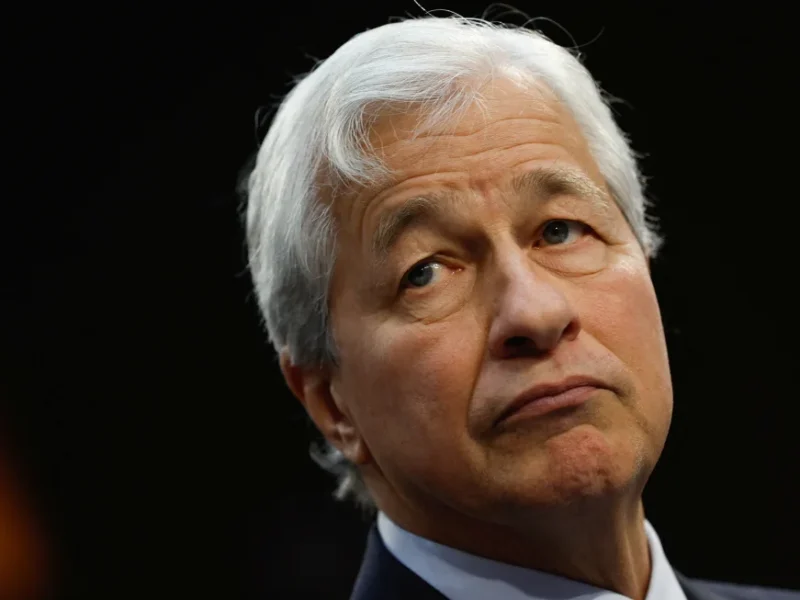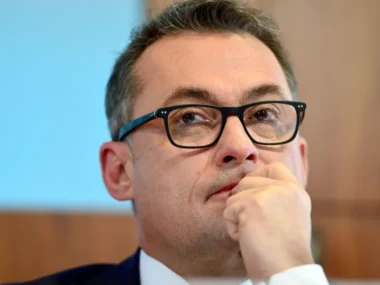The United States is experiencing a decline in the number of publicly traded companies, a trend that concerns Jamie Dimon, a prominent figure in the business world. In 1996, there were 7,300 publicly traded companies in the US, but today that number has decreased to about 4,300. This decline doesn’t mean there are 40% fewer companies; rather, many companies are opting to remain private, away from public scrutiny.
Dimon, the CEO of JPMorgan Chase, highlighted the role of private equity (PE) in this phenomenon. PE funds acquire or invest in companies, often taking them private or keeping them from going public. This shift allows these companies to operate with more autonomy and prioritize short-term profits for potential future sales.
The rise of privately held companies backed by PE has raised concerns about transparency and regulatory oversight, as publicly listed companies are subject to stricter regulations and disclosure requirements. Dimon emphasized the importance of transparency in maintaining investor trust and market integrity.
Dimon acknowledged that his company benefits from taking companies public but stressed that his concerns extend beyond JPMorgan’s financial interests. He warned that the diminishing number of publicly traded companies could obscure our understanding of the US economy.
Several factors may be driving companies away from public markets, including intensified reporting requirements, shareholder activism, and the pressure to meet quarterly earnings expectations. Dimon criticized the emphasis on short-term performance, which can lead to accounting manipulations and neglect of long-term strategic investments.
He also raised concerns about shareholder activism and the influence of proxy advisers on corporate governance decisions. Dimon questioned whether corporate governance should be influenced by for-profit international institutions and highlighted the need for greater transparency and independence in the proxy advisory process.
In summary, Dimon warned that the trend of companies shunning public markets in favor of private ownership could have detrimental effects on market transparency, corporate governance, and long-term economic growth if left unchecked.
Donald Trump’s net worth has declined by $2 billion since the peak of Truth Social stock last month.
Shares of Trump Media & Technology Group are continuing to plummet, with a further 8% drop reported on Monday, adding to a week of significant losses that have erased one-third of the stock’s value. This downturn has significantly reduced former President Donald Trump’s stake in the company to approximately $2.9 billion from its peak of $5.2 billion, marked by a closing high of $66.22 on March 27, the day following its public debut.
Trump holds a controlling interest of 78.8 million shares in Trump Media, which was established in 2021. Its journey to going public via a merger with a shell company faced prolonged delays due to regulatory and legal challenges.
Upon its public listing late last month, analysts immediately cautioned that Wall Street was excessively inflating the company’s value, considering conventional metrics such as revenue and user base. Last week, Trump Media disclosed a $58 million loss for the previous year with minimal revenue of just $4.1 million. In comparison, Twitter (now X) recorded over 100 times that revenue, at $665 million, in 2013 prior to its IPO later that year.
Despite the recent setbacks, shares of Trump Media and its merger partner have more than doubled in value this year, even though the company’s revenue and fundamentals are far less substantial compared to other tech firms.
President Biden has announced plans to provide Taiwan Semiconductor Manufacturing Co. (TSMC) with $6.6 billion to boost chip production in the United States.
The US government is set to allocate $6.6 billion to assist the largest manufacturer of semiconductor chips globally in constructing three factories in Arizona. This initiative is part of President Joe Biden’s strategy to ensure a stable supply of advanced chips. According to reports by my colleagues Sam Fossum and Anna Cooban, the White House announced on Monday that it had entered a non-binding agreement with Taiwan Semiconductor Manufacturing Company (TSMC) to provide funds for the fabrication plants, alongside approximately $5 billion in government loans.
President Biden emphasized the importance of this move, noting that while America pioneered chip technology, its production capacity has dwindled over time, posing economic and national security risks due to heavy reliance on foreign suppliers for advanced chips.
TSMC, known for manufacturing around 90% of the world’s most advanced chips, confirmed plans for a third plant in Arizona, in addition to two previously announced facilities. This increased investment in Arizona will exceed $65 billion.
Following this announcement, TSMC’s shares rose more than 1% at the close of trading on Monday.











